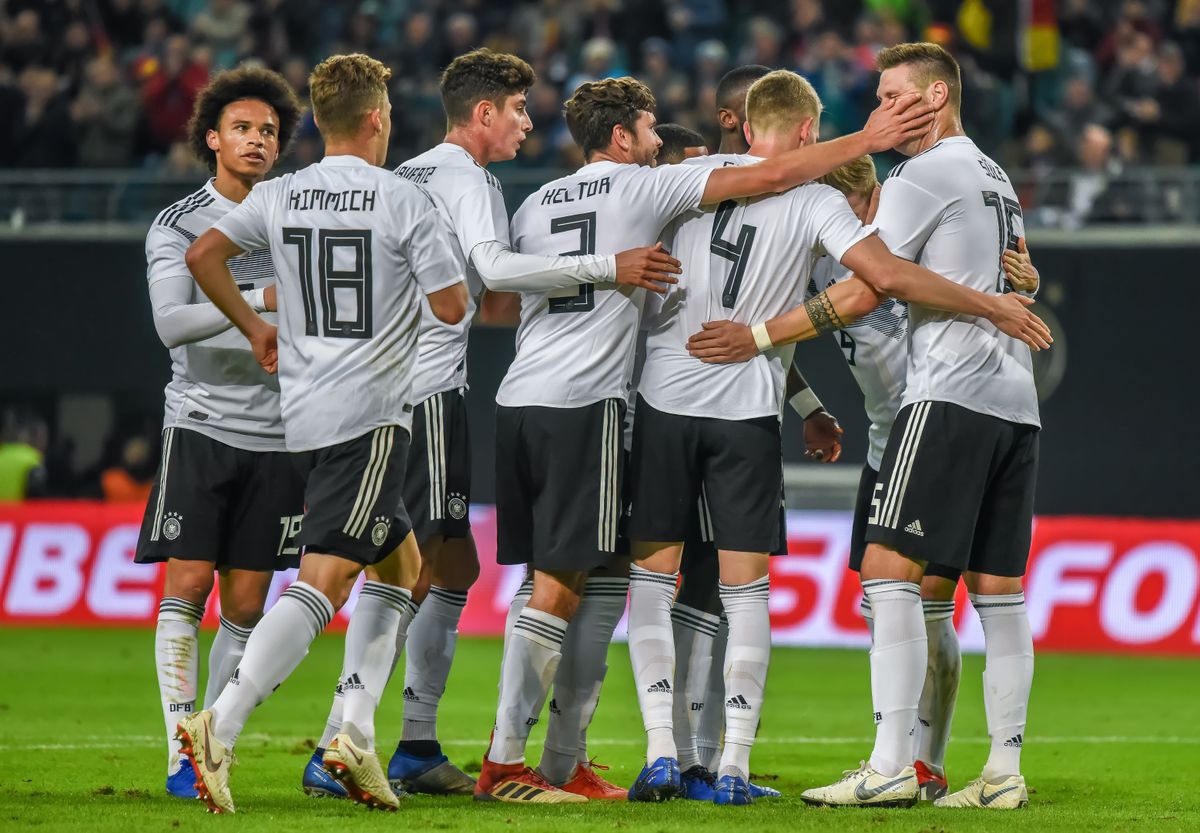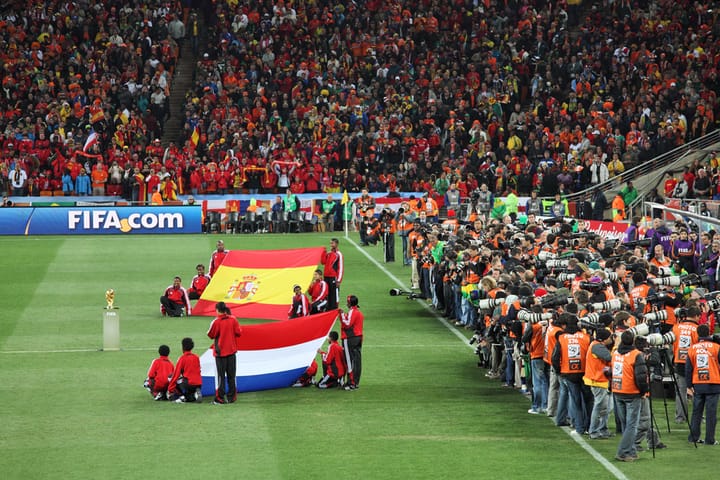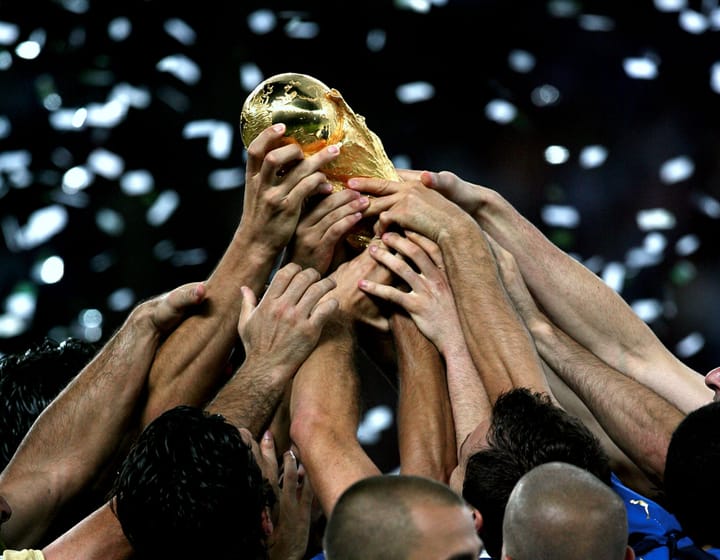Read the story of the four German World Cup wins
Germany is one of the most successful countries in world soccer. In this article, we will describe all their four World Cup wins.

Germany is one of the most successful nations in the history of the FIFA World Cup, having won the tournament on four occasions. Each victory has had a big impact on Germany's football culture, national identity, and sense of unity as a country. In this article, we will take a closer look at each of Germany's four World Cup triumphs and their impact on the country.
1954 World Cup: Number One
The 1954 FIFA World Cup, held in Switzerland, is remembered as one of the most remarkable and surprising events in the history of football. At that time, Germany was still recovering from the devastation of World War II, and few people expected them to do well in the tournament.
Germany's journey to the final was not smooth, with a loss to Hungary in the group stage. But they managed to make it to the knockout rounds after two wins against Turkey in one week.
In the quarterfinals, Germany faced a talented and highly favored Yugoslavian team. Once again, Germany surprised everyone by winning 2-0, with an own goal from Yugoslavia player Ivan Horvath and a second goal from Helmut Rahn.
In the semifinals, Germany faced Austria, who were heavy favorites after beating Switzerland 7-5 in their quarterfinal match. Despite this, Germany managed to beat Austria with a convincing 6-1 final score.
In the final, Germany faced the heavily favored Hungarian team, which had thrashed them 8-3 in the group stage. Hungary was considered the best team in the world at that time, with legendary players such as Ferenc Puskás and Nándor Hidegkuti.
Despite being the underdogs, Germany played with great determination and spirit as Hungary managed to score two goals in the first ten minutes. Despite this setback, Germany kept fighting and scored in the 10th minute and again in the 18th minute with a goal from Helmut Rahn. Hungary dominated the rest of the game, but Germany's goalkeeper, Toni Turek, made several outstanding saves to keep his team in the lead.
In the end, Germany held on to win 3-2, with Rahn scoring the winning goal in the 84th minute. The victory was a huge surprise and a source of immense national pride for Germany, who had been seen as underdogs throughout the tournament. The win is often referred to as the "Miracle of Bern" and is widely regarded as one of the greatest upsets in the history of football.
1974 World Cup: Number Two
The 1974 FIFA World Cup was held in West Germany, and the host nation emerged as the champions. The German team, led by captain Franz Beckenbauer, defeated the Netherlands 2-1 in the final held in Munich's Olympiastadion.
The German team had a strong start to the tournament, winning their first two group stage matches against Chile and Australia, but suffered an unexpected loss against East Germany. Nevertheless, they qualified for the knockout stages, where they defeated Yugoslavia, Sweden, and Poland in the knockout stages to reach the final.
In the final against the Netherlands, the Dutch took the lead in the second minute through a penalty by Johan Neeskens, without the Germans having touched the ball at all. German defender Paul Breitner equalized and regained the lead when Gerd Muller scored the winner two minutes before halftime.
The win was significant for West Germany as it marked their second World Cup title, following their first win in 1954. The victory also helped to unify the country, which was still recovering from the aftermath of World War II and was divided into East and West Germany.
1990 World Cup: Number Three
The 1990 FIFA World Cup was held in Italy, and the West German team emerged as champions for the third time in their history. In the Stadio Olimpico in Rome, the German team under captain Lothar Matthaus defeated Argentina 1-0.
The German team had a solid tournament, winning its group stage matches against Yugoslavia and the United Arab Emirates and drawing against Colombia. They then defeated the Netherlands, Czechoslovakia, and England (in a dramatic penalty kick shootout) in the knockout stages to reach the final.
In the final against Argentina, the Germans took the lead in the 85th minute through a penalty by Andreas Brehme. Argentina tried to mount a comeback but failed to find the back of the net, and the German team held on to secure the win.
The victory was significant for Germany as it marked their third World Cup title and the first as a united country, following the fall of the Berlin Wall and the reunification of East and West Germany. The team's success in the tournament was celebrated throughout the country, and the win helped boost morale and national pride.
2014 World Cup: Number Four
The 2014 FIFA World Cup was held in Brazil, and the German team emerged as champions for the fourth time in their history. The team, led by captain Philipp Lahm and coached by Joachim Low, defeated Argentina 1-0 in the final held at the Maracana stadium in Rio de Janeiro.
The German team had a strong tournament, winning their group stage matches against Portugal and the United States and drawing against Ghana. They then defeated Algeria and France to reach the semifinals against host country Brazil. They beat Brazil in a historic 7-1 win to reach the final.
In the final against Argentina, the Germans dominated possession and had several chances to score before finally breaking the deadlock in the 113th minute through a goal by Mario Gotze. The goal was one of the most memorable moments of the tournament and helped the German team secure their fourth World Cup title.
Manuel Neuer was awarded the Golden Glove as the best goalkeeper of the tournament.




